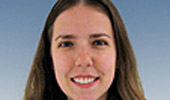The Physics & Astronomy Colloquium Series presents Jeyhan Kartaltepe of the National Optical Astronomy Observatory on “How Cosmic Collisions Shape the Universe” at a special time on Wednesday, Jan. 15, 4:10 p.m., in Walter 245.
Abstract: Galaxy mergers and interactions are thought to play a key role in the evolution of galaxies. These collisions can affect many important galaxy properties, such as their physical structure, their star formation rates, and the growth of their central black holes. However, the details of this role, and how it has changed over the age of the Universe, is still a matter of much debate. Both theoretical models and some recent observations have suggested that mergers do not play a dominant role in the early Universe, but that instead much of the mass growth of galaxies can be attributed to secular processes such as disk instabilities.I will present the results of a detailed, multiwavelength analysis of galaxies selected to have very high star formation rates in the early Universe, at the key epoch when the majority of stars in the Universe formed. By studying the structure and morphology of these objects, we can place constraints on their merger histories and quantify how such an event influences the overall rate of star formation. I will also discuss the relative role that disk instabilities may have had in both star formation and black hole activity.
Upcoming Spring 2014 Events
Colloquia are held in the Walter Hall, Room 245, on Fridays at 4:10 p.m. unless otherwise noted.
Rik Williams of Carnegie Observatories on “Galaxy and Group Assembly in the Thermal Era” at a special time on Wednesday, Jan. 22, at 4:10 p.m. in Walter 245.
Sharon Meidt of the Max Planck Institute for Astronomy on “How Gas Forms Stars: The Influence of Galaxy Dynamics” at a special time on Monday, Jan. 27, at 4:10 p.m. in Walter 245.
Ryan Chornock of Harvard-Smithsonian Center for Astrophysics on “Transient Astronomy and the Violent Deaths of Stars” at a special time on Wednesday, Jan. 29, at 4:10 p.m. in Walter 245.
Henry Clark of Texas A&M University on “Radioactive Ion Beam Physics at the Cyclotron Institute” on Friday, Jan. 31, at 4:10 p.m. in Walter 245.
Jens Dilling of the University of British Columbia on “Understanding the universe, one rare isotope at a time” on Friday, Feb. 7, at 4:10 p.m. in Walter 245.
Michelle Espy of Los Alamos Scientific Lab on “Applications of SQUIDs: from brains to bombs” on Friday, Feb. 21, at 4:10 p.m. in Walter 245.
John Wikswo of Vanderbilt University on “A Physicist’s Perspective on the Complexity of Biology” on Friday, Feb. 28, at 4:10 p.m. in Walter 245.
TBA on Friday, March 14, at 4:10 p.m. in Walter 245.
Serge Nakhmanson of the University of Connecticut on “Computational Design of Multifunctional Complex-oxide Materials Across Length Scales” on Friday, March 21, at 4:10 p.m. in Walter 245.
Maxim Pospelov of the University of Waterlooon “Constraining the Dark Sector with BBN and CMB physics” on Friday, March 28, at 4:10 p.m. in Walter 245.
Jennifer Dionne of Stanford University on “Visualizing chemical reactions and light-matter interactions with nanometer-scale resolution” on Friday, April 4, at 4:10 p.m. in Walter 245.
Robert Austin of Princeton University on “Nonlinear Dynamics” on Friday, April 11, at 4:10 p.m. in Walter 245.
Nick Wu of the West Virginia University on “Plasmon-Enhanced Solar Energy Harvesting” on Friday, April 18, at 4:10 p.m. in Walter 245.
Departmental Awards Gathering on Friday, April 25, at 4:10 p.m. in Walter 245.
















Comments